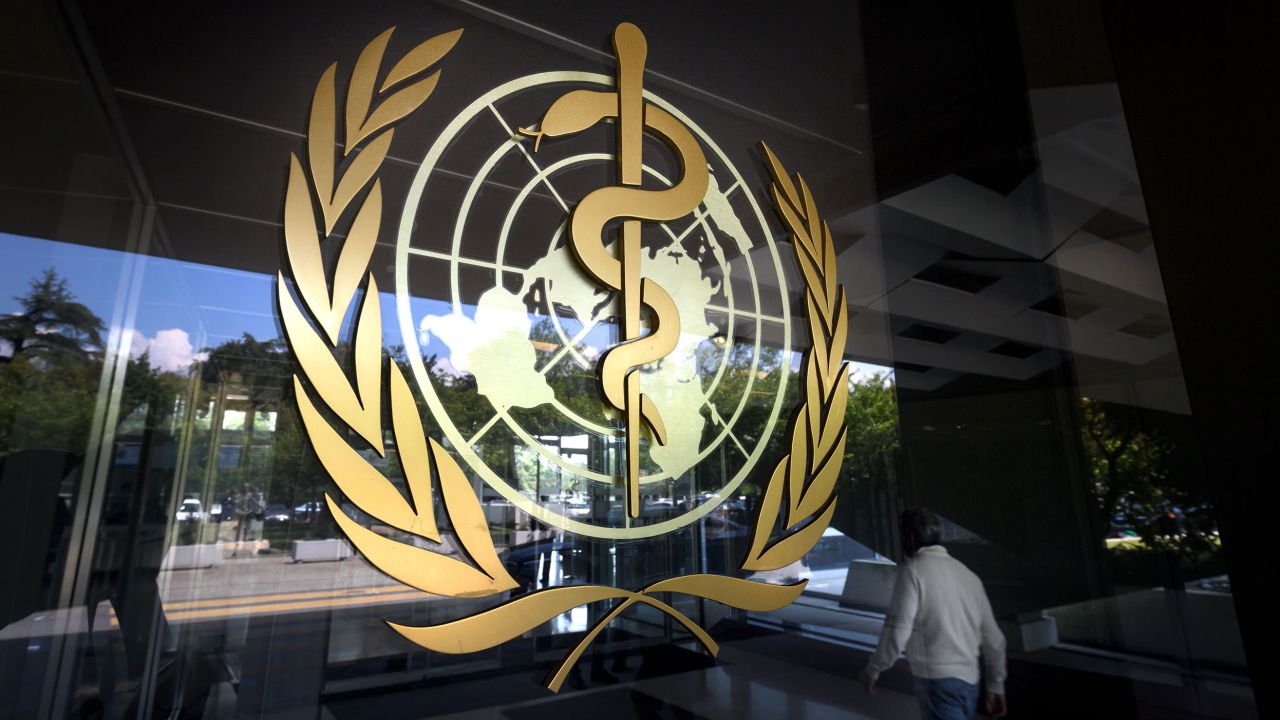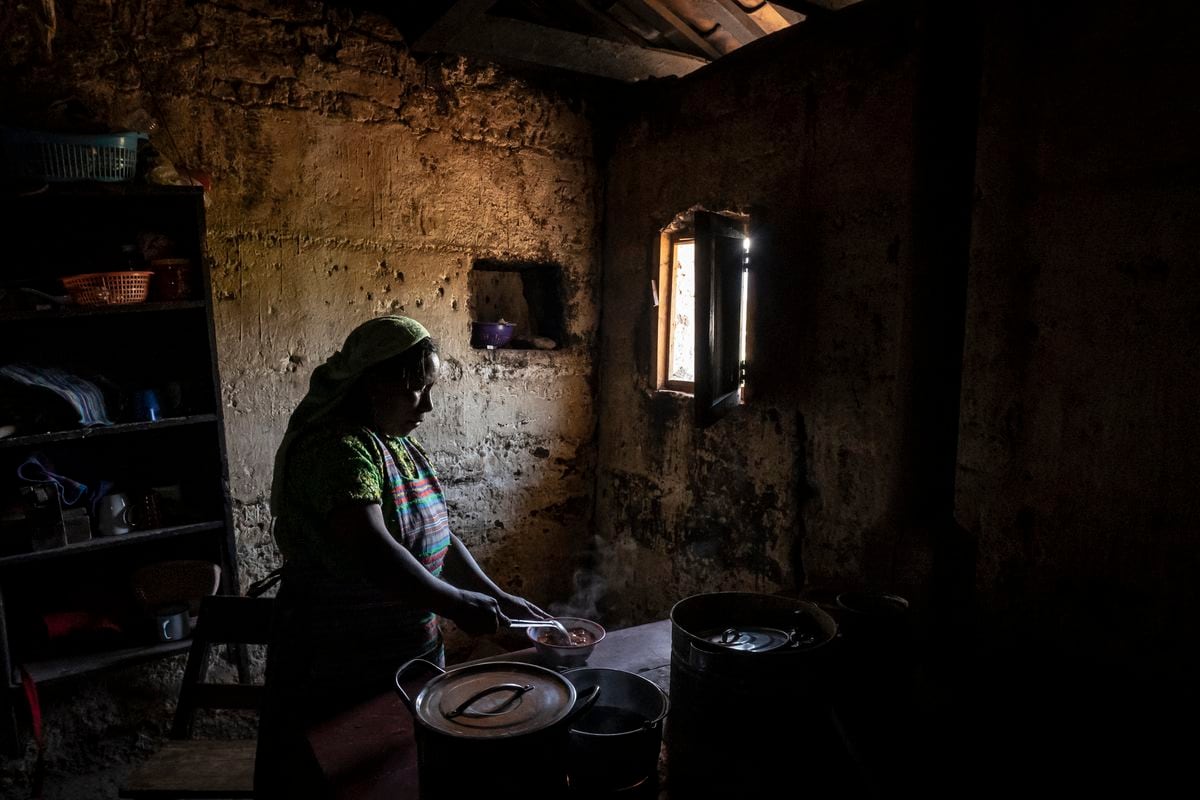The WHO maintains the covid-19 pandemic as an emergency 0:49
(CNN) --
Covid-19 remains a global health emergency, the World Health Organization (WHO) declared Monday, but acknowledged that the pandemic is at a "transition point."
The WHO International Health Regulations Emergency Committee discussed the issue on Friday at its 14th meeting on covid-19, and its director general, Tedros Adhanom Ghebreyesus, agreed that the declaration of a public health emergency of international concern (PHEIC , for its acronym in English), you must continue.
In a statement released Monday, the WHO advisory committee said it urged the entity to propose "alternative mechanisms to maintain global and national attention on COVID-19 after the end of the PHEIC."
"Achieving higher levels of population immunity globally, either through infection and/or vaccination, may limit the impact of SARS-CoV-2 on morbidity and mortality, but there is little doubt that this virus will remain a permanently established pathogen in humans and animals for the foreseeable future. Therefore, long-term public health measures are needed," the committee said Monday.
"Although the elimination of this virus from human and animal reservoirs is highly unlikely, mitigation of its devastating impact on morbidity and mortality is achievable and must remain a priority objective."
In a list of temporary recommendations, Tedros pointed out that countries must continue to vaccinate the population and incorporate vaccines against covid-19 into routine care;
improve disease surveillance;
maintain a strong healthcare system to avoid a "panic-neglect cycle";
keep fighting misinformation;
and adjust international travel measures based on risk assessment.
advertising
Biden plans to end the national covid-19 and public health emergency on May 11
The organization declared the coronavirus outbreak a PHEIC in January 2020, about six weeks before characterizing it as a pandemic.
A PHEIC creates an agreement between countries to abide by the recommendations of the WHO to manage the emergency.
In turn, each country declares its own public health emergency, declarations that carry legal weight.
Countries use them to pool resources and waive rules in order to alleviate a crisis.
The US also remains under its own public health emergency declaration, which US Health and Human Services Secretary Xavier Becerra last renewed on January 11.
More than 170,000 people have died from Covid-19 in the past eight weeks, Tedros said last week when announcing the committee meeting, and while the world is better equipped to manage the pandemic than it was three years ago, he remains "very concerned about the situation in many countries and the growing number of deaths.
Although the global trend in deaths from covid-19 is upward, the seven-day average is still significantly lower than earlier in the pandemic, according to data from Johns Hopkins University.
Last week, before the committee meeting, Tedros pleaded with countries not to give up the fight against covid-19.
"My message is clear: do not underestimate this virus," he said.
"It has shocked us and will continue to shock us, and will continue to kill unless we do more to get health tools to the people who need them and comprehensively tackle misinformation."
Covid-19 Misinformation Convinced This Man To Seek Refuge On An Island, Now He's Missing
A "wake-up call" for future outbreaks
Also on Monday, the International Federation of Red Cross and Red Crescent Societies (IFRC) released two new reports warning that "all countries remain dangerously ill-prepared for future outbreaks." ".
IFRC Secretary General Jagan Chapagain said the Covid-19 pandemic should be "a wake-up call".
"The next pandemic could be right around the corner; if the experience with Covid-19 doesn't accelerate our steps towards preparedness, what will?" he said in a press release.
Reports claim that much of the impact of the covid-19 crisis on countries, such as job loss and poverty, learning loss, food insecurity and increased mental health problems, could have been avoided if governments had invested in emergency preparedness.
Three years have passed since the first case of covid-19 in the United States: What have we learned and what else do we need to understand?
They recommend countries prepare for simultaneous hazards such as disease outbreaks and extreme weather events.
"We need to start preparing now, because our world is becoming more dangerous," the IFRC's World Disasters Report 2022 states, noting that many disasters are driven by climate change.
"In 2021, there were 378 disasters, not including disease outbreaks, which is higher than the 20-year average of 337 annual disasters. Many countries had to respond to hazards such as hurricanes and floods while dealing with covid-19" .
The report calls for "action at the community level" to prepare for disaster on the front lines, and to address existing economic and racial inequalities so they are not exacerbated when disaster strikes.
The IFRC's Everyone Counts 2023 report also emphasizes "local resilience", by strengthening and investing in "public health, sanitation, shelter and economic security" of communities.
Ultimately, the report states: "No one is safe until everyone is safe. The pandemic is not over and neither is the response."
-- Carma Hassan contributed to this reporting.
Covid-19WHO



/cloudfront-eu-central-1.images.arcpublishing.com/prisa/OOLBKF5K4VFN7EA7IFFA4PMVUE.jpg)

/cloudfront-eu-central-1.images.arcpublishing.com/prisa/PCE7NMB26ZDVRIQX2R26JSNH6A.jpg)







